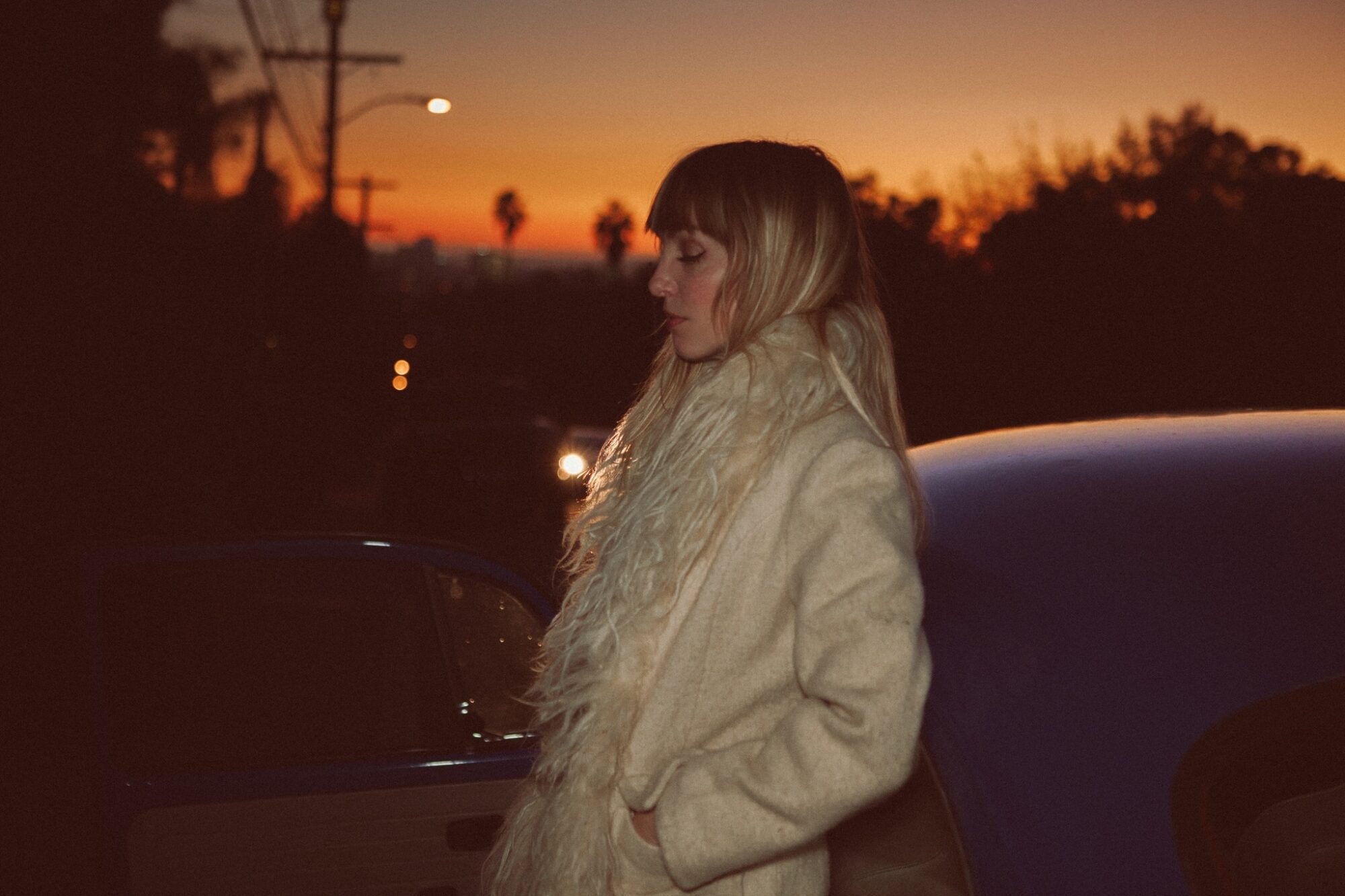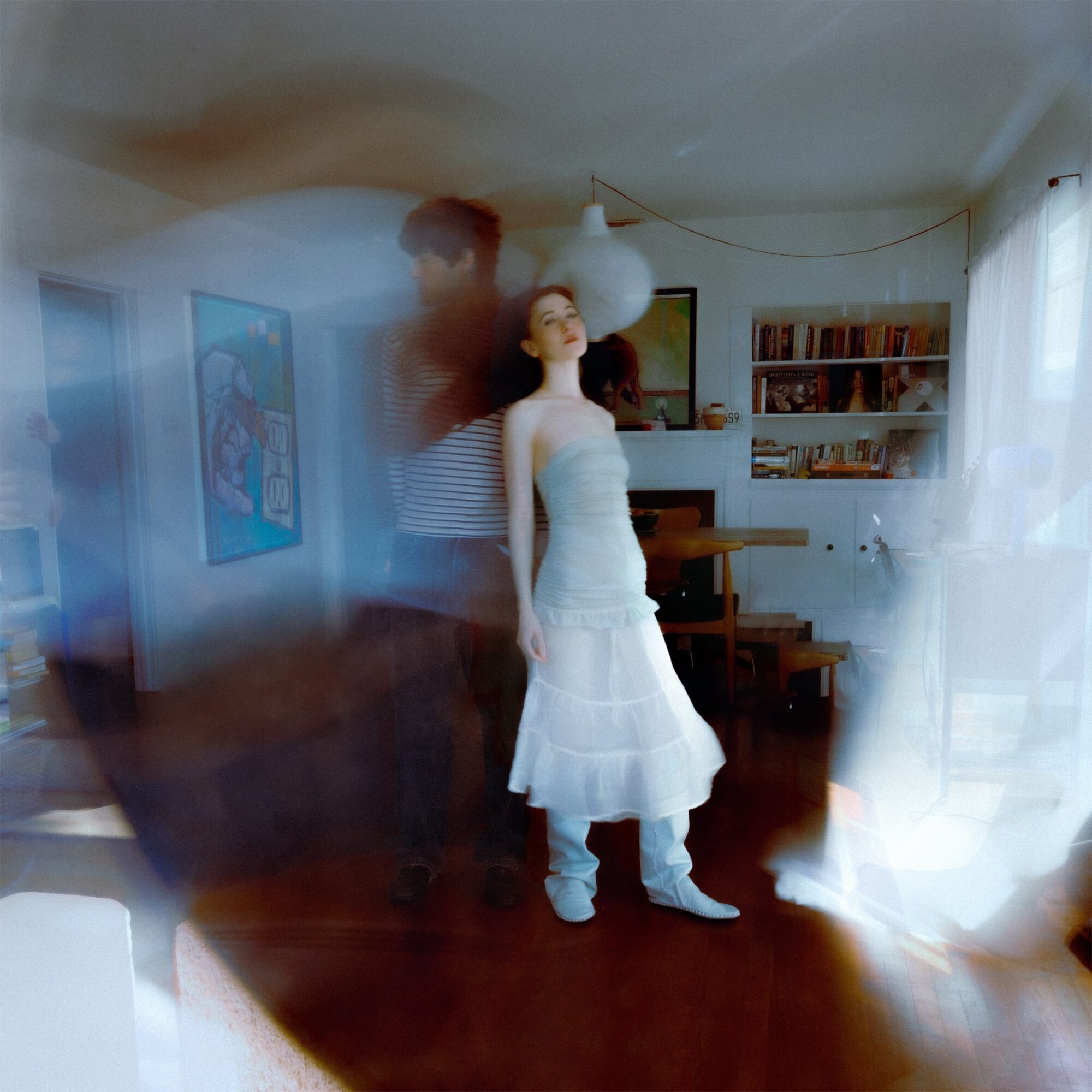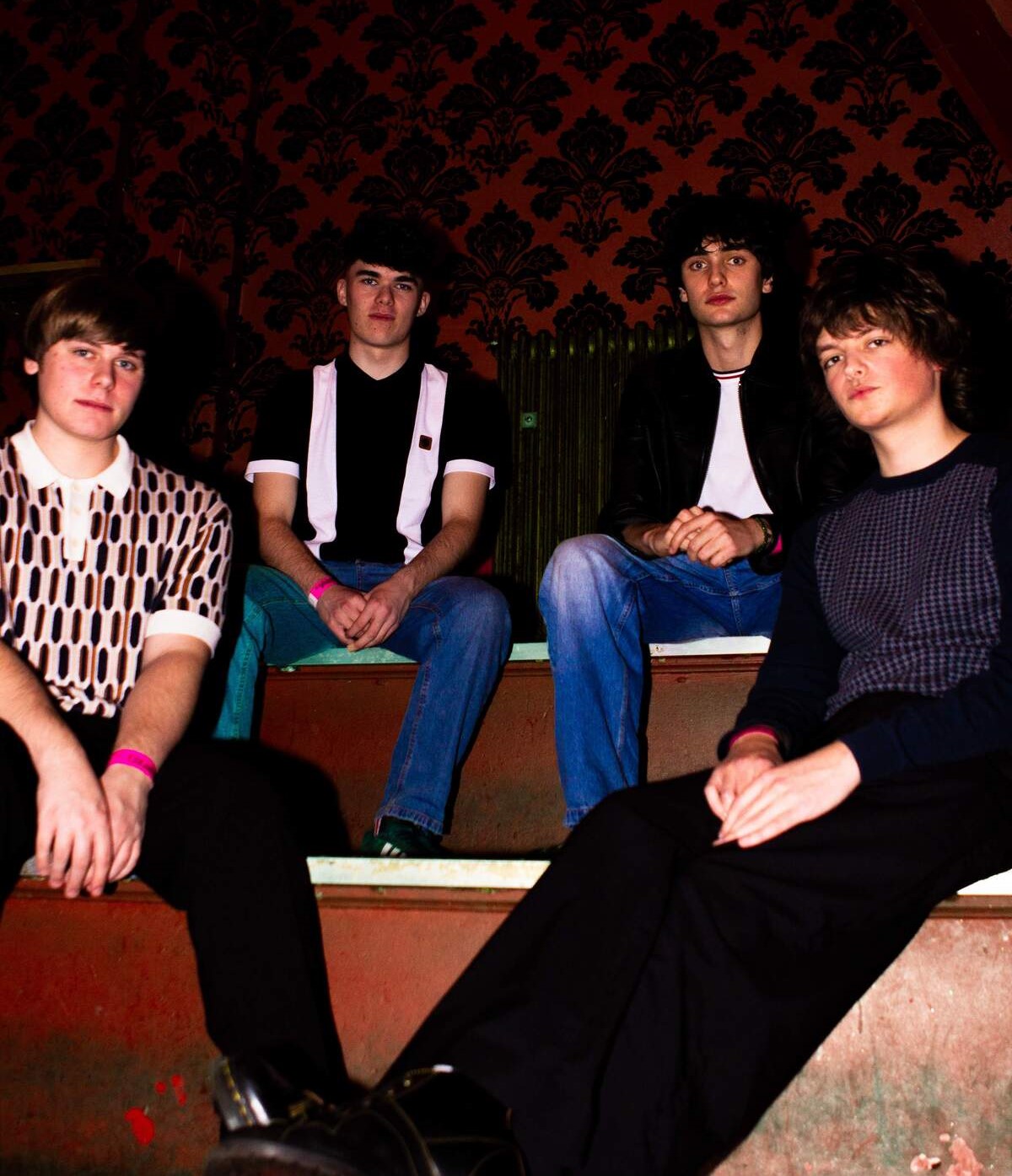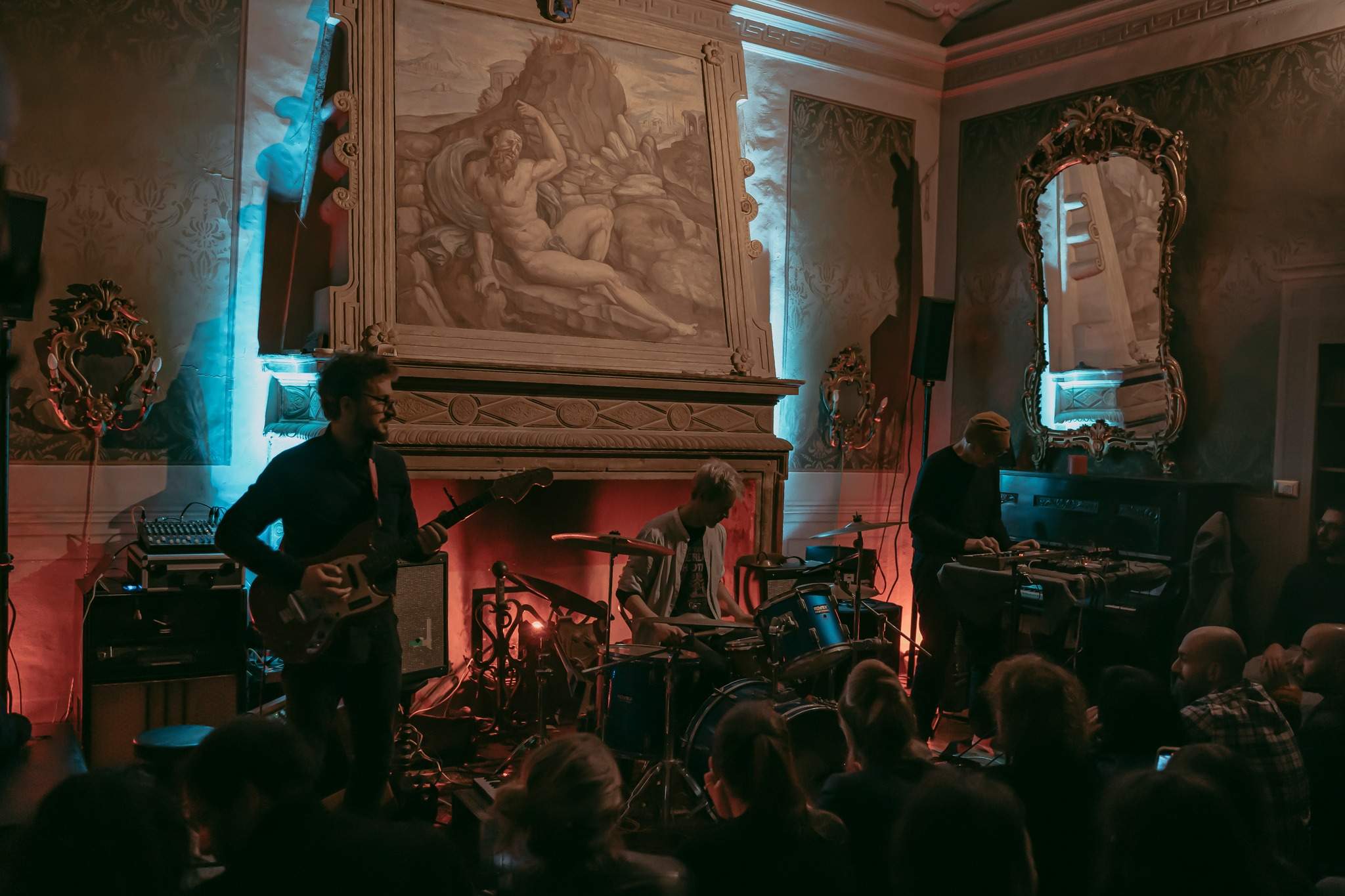The Mynabirds Interview: ‘It’s Okay To Go Back If You Keep Moving Forward’
On November 7, The Mynabirds will release ‘It’s Okay To Go Back If You Keep Moving Forward’ on Laura Burhenn’s own Our Secret Handshake imprint.
‘It’s Okay To Go Back If You Keep Moving Forward’ is a rare act of artistic excavation. Recorded live to tape with no overdubs, it situates itself at the intersection of vulnerability and intention, where imperfection becomes a sacred aesthetic. Burhenn strips her sound to its elemental form: voice, piano, air, and silence. What emerges is a cycle of songs that feel exhaled, a quiet dialogue between memory and presence.
Drawing upon Jungian ideas of the shadow and the collective unconscious, Burhenn treats songwriting as psychoanalysis conducted through melody. Her phrasing hovers between hymn and confession, invoking both Dusty Springfield’s soul and the austerity of art song. Each track carries the residue of past selves, yet the album resists nostalgia. Burhenn insists on the irreducible human grain of the voice. ‘It’s Okay To Go Back If You Keep Moving Forward’ stands as a document of spiritual archaeology, a study in how song can function as medicine, ritual, and proof of life.
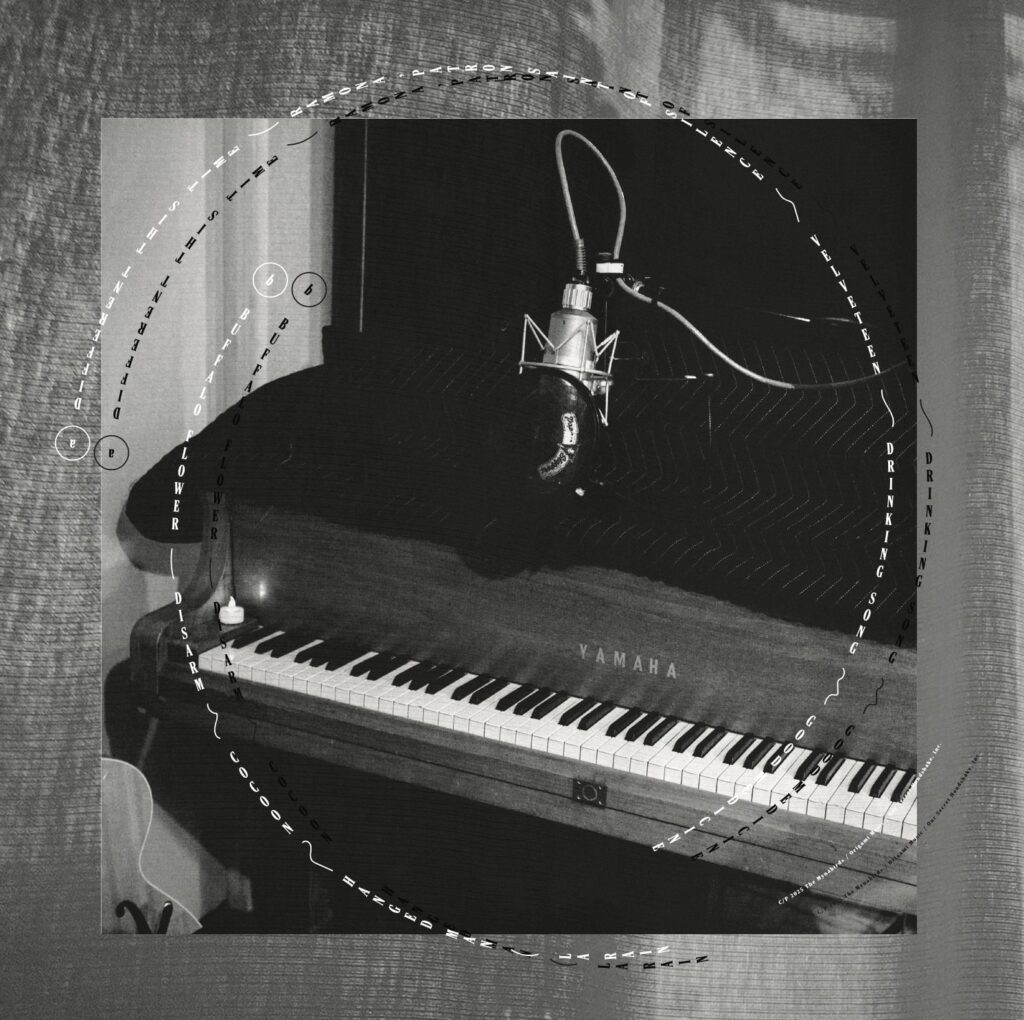
“Without the silence, we wouldn’t recognize the song.”
The title, ‘It’s Okay To Go Back If You Keep Moving Forward,’ is a beautiful paradox. It feels like a loop, like a Möbius strip of time and self. It suggests that the past isn’t a place you’re stuck in, but a resource. Can you talk about a specific “ghost” from your past, a memory or a feeling, that you revisited while making this album? Did re-engaging with it in the present tense fundamentally change how it felt?
Laura Burhenn: You’ve nailed it! The Möbius strip of time and self, the endless resource you become as you live through more experience, much of which can hilariously turn out to be patterns you’re meant to learn to break. This record made me go all the way back to the beginning: Why did I start singing? Why did I keep singing? Going back to the diaristic entries of solo late nights at the piano that was pouring my broken heart out on the keys to ultimately honey-glue it back together was remembering the why for me. And there was this flip side of the coin that was “singing to be seen” by a father who wasn’t around much when I was a kid. And a third little Möbius strip was remembering the lineage of Voice I belong to: the poets, singers, storytellers who have written and sung their way out of cages, and written literally all of humanity out of locked doors, since time began. There was a real spiritual and psychological unfolding that was anthropological: an unearthing of my Self (capital S), and an unearthing of human history, too. How can we come back to creativity to remember how to start honestly again?
You’ve talked about a period of creative silence, a kind of self-imposed “retirement” from singing. This sounds like the sentiment in ‘Ramona, Patron Saint Of Silence.’ When you were in that space, was it a quiet room or a roaring void? Did the silence feel more like a fortress or a prison, and what was the first, faintest whisper that convinced you to break it?
‘Ramona’ was the first new song I wrote in eight years. I had a copy of Audre Lorde’s “Your Silence Will Not Protect You” next to me, and I was kind of beating myself up for not knowing how or what to sing anymore. Then, as I sat at the piano, I could feel a simple resoluteness of Leonard Cohen descending (I have “that’s how the light gets in” tattooed on my left forearm), the cadence of the piano line held time, and words just tumbled out like a shaft of sunlight from a pinhole in the ceiling: a prayer. I suddenly felt so much gratitude. Anyone who has survived a great trauma, particularly and sadly that of sexual assault, might know the all too common “freeze” instinct, which is essentially silence embodied. But that instinct, that silence, can literally save your life.
One of the first songs that ever made me want to write songs in the first place was Tori Amos’ ‘Silent All These Years.’ ‘Ramona’ is a looping back to that song, with gratitude, too.
Without the silence, we wouldn’t recognize the song.
Your influences range from Dusty Springfield to Carl Jung. That’s a fascinating bridge to cross. How did Jungian ideas, like the shadow self or the collective unconscious, show up in your songwriting for this album, especially as you were stripping the songs down to their core?
How much time do we have? I feel like I’d have to speed read you through my therapist’s notes from the last decade to get all the way to this answer! She’s actually a Jungian psychoanalyst, so couple that with my fascination in the Buddhist and Vedic ideas of the collective unconscious, and we’ve got a whole podcast series we could produce haha. I think the easiest way to answer this is to say that this record is very part for the whole. Like, who am I and what is my voice, really? And what are we (all of humanity), and what is our Voice (capital V), really? How much of the Ego can I let into this album in a way that also dissolves the Ego completely? I feel like I was really playing around with that. And with this idea:
The light might shine us, but the shadow defines us.
You’ve been a musical shapeshifter over the years, from Americana to synth pop. This new album is a deliberate act of stripping things back, returning to just your voice and a piano. What did you learn about the true bones of your songs when you took off all the “costume” of production and studio magic?
We recorded 16 or 17 total songs for this record over three different recording sessions. In the end, the songs that wanted to be on the album are what I call “house on fire” songs, the songs I’d reach for if my whole life was engulfed. They’re the songs that have carried me quietly through the darkest of nights, even if they’re the quieter ones that wouldn’t necessarily be anyone else’s party playlist picks. There’s a great deal of mystery to me in why these particular songs came forward. And so there’s a trusting I have in the fact that these songs are a part of a lineage of voices that have carried us through the darkest nights of humanity’s soul. I think we’re in one of those places right now. And these songs are little beacons to carry us through. They’re quiet fighters. Lithe muscle wrapped like light around the bones.
This album was recorded live with no overdubs, autotune, or digital tricks. What was the most emotionally vulnerable moment during those recording sessions, and what unexpected beauty or imperfection was captured precisely because you embraced the humanity of it all?
Oh God, I listen back sometimes and hear certain notes I would love to nudge up a hair to perfect pitch. But autotune’s not real in the same way facetune isn’t real. I wanted this record to be like meeting someone you admire online in real life. At first there’s a confusion, maybe even a disappointment with how differently they show up in space. But then you grow to know that’s the real them, and it’s more beautiful, irreplicable. Give me asymmetry every day of the week. Give me more to love!
Your production company is called Our Secret Handshake. The name itself suggests a hidden language, a kind of shared understanding between collaborators. How did this philosophy, which you’ve developed while producing for other artists, influence the way you worked with Pierre de Reeder on your own music?
Pierre has this beautiful, egoless way about him. I told him the vision I had for this very simple, human record I wanted to make, and he simply listened. He let me record a song eight times, and helped pick the most honest take. We didn’t talk about every song as we recorded them so much as we listened. And in that way, listening was our secret language. It was a really special way to make a record. I have to give a huge shout out to Ben Brodin who played on the record, too. We played a lot together live in the room (him listening to me and following along as I pushed and pulled at the tempos with no click tracks), and he also took the songs home and added touches (bowed vibraphone, B3 organ swells) that added to certain moments in such beautifully organic ways. Gabe Noel, who played cello, literally listened once to each song and then played along. It was like we were listening in real time and letting the songs direct us where to go. There’s a meandering to the record in that way, in a really sweet “I’m walking through the forest letting my attention lead me to each little wonder as I encounter it” kinda way. It’s meditative like that.
Let’s talk about the paradox of a song like “Ramona, Patron Saint Of Silence.” It’s a hymn to silence that is, in itself, a powerful vocal statement. It’s a song about finding your voice. How do you balance the celebration of silence with the necessity of speaking up, of using your platform for activism and social change?
The silences I’ve had to wrestle with throughout my life, and particularly on this record, have all come from specific traumas, often ones I’ve been in denial about by continuing to sing, shout, and put out records as if to scream, “Look at how great I’m doing! I’m fine!” The proverbial dog in the room on fire lol. I have learned to recognize that in myself and in others, particularly when, in this time, there are powers and political leaders working to silence the voices of trans and queer, Indigenous folks, people of color, immigrants, women, animals, and whole ecosystems, the entire Palestinian people, as they push on old racist, antisemitic, and Islamophobic tropes to instill fear and create division between us. It’s the fascist, white supremacist, capitalist playbook hard at work. Remembering and using our voices in this time, and amplifying the voices of others before they are silenced forever, that is our most important work. That a voice can vibrate at the right frequency to shatter glass is the right poetry for this time. Living in California, I think a lot about fire. Sequoia pine cones literally need fire to open up, drop their seeds, and regenerate. Prescriptive fire is often needed to clear undergrowth, and clearing the undergrowth, the small, eventually strangling stuff, can save the whole forest. The music of medicine warms us up and reminds us of our power to shatter what’s keeping us small, and to burn away what’s threatening our very existence.
You’ve performed with The Postal Service and Foster the People, and sung at rallies with Bernie Sanders. You’ve been in spaces that are both huge and intimate. How do you find a way to maintain your personal voice and artistic integrity when your audience and platform are so vast and diverse?
It’s like finding the quiet corner of the party to have a deep catch up with an old friend or a stranger-made-friend. I’m so grateful for all the big opportunities I’ve had to sing in front of big audiences, on festival, TV, and radio stages. But just the other day I found myself at a writing circle in Boyle Heights of women from the punk scene in the 70s. They were radical queers, punks, farmers, chefs, public history teachers, healthcare workers, poets, each one making incredible impacts on their own local communities, feeding and caring for the unhoused and immigrants. There’s no hierarchy anywhere; that’s a falsehood of celebrity culture. And so moving between those worlds to see how each person can impact community in meaningful ways, that’s where I always want to be. We have to remember how powerful the small connections and offerings are, and do them. How many drops make up the ocean? How was the Grand Canyon carved?
You joked about calling the album AI Could Never. AI is fundamentally based on patterns and data. Your music, however, is born from a different kind of data: loss, grief, and the quiet revelation of a hot spring. What’s one emotional truth on this album that you believe is so deeply human that it would be impossible for an AI to ever replicate?
Gosh, I really just love the poetry of your questions. It’s obvious Chat GPT didn’t write them. That! That’s the thing I want to pass on through this record: that each one of us has a unique perspective and way about us that’s like a soul fingerprint pressing into the clay of our human history. We desperately need each one to really tell and preserve our humanity. AI is a great equalizer; it’s looking for the median and replicating that. What I want to hear, see, and share is the outliers. I want the rough edges! The lives and voices that dig deep and reach way out into the cosmos! Not the straight line drawn between us.
The Mynabirds have always been politically engaged, and this album’s release is tied to the “Disarm Spotify” campaign. For many artists, a protest like this feels like a tough choice, a moral victory that might come with a professional cost. Can you share the personal thinking that led to your decision to pull your music from the platform?
Again, how much time do we have here? Ha. That Daniel Ek is presiding over a company that’s been underpaying (or not paying) artists fairly since its inception and is now platforming and promoting fully AI generated bands, it’s all so disgusting. But when I heard he’d taken the billions he profited on the backs of unpaid or underpaid labor and invested nearly 700 million into an AI military start up, of which he is now chairman? As a pacifist who’s been protesting war since shortly after 9/11, the idea that a billionaire tech CEO would take my songs, or anyone else’s beloved creations that saved them from the pit of despair, and turn them into bombs is anathema, pure and simple. Music is medicine. It should be the salve bringing us together across political and cultural divides, across borders and barriers. I’m here for the healing. Not the rise of the oligarchs selling us endless wars that only fatten their bank accounts. No thanks.
But even with that conviction, there’s a great deal of doubt I’ve had about this decision, especially as a person releasing music independently these days. How will people hear my music? Will I ever make back the money I invested into making and pressing this record? I mean, Spotify was never going to be the financial solution to that last question based on their pay rates lol. So that’s an easy decision there. Ultimately, this is about legacy: what world are we leaving future musicians, future generations? I’d rather be remembered as an artist who helped forge a path for a kinder future. Whether I make money or “have success” in this moment is meaningless if there’s no one in the future to enjoy the fruits of our labors.
You refer to music as “medicine” for survival. If this album is the medicine, what specific ailment, an emotion or a trauma, is it designed to heal? For you as the creator, and for us as listeners, what is the prescription?
The world is so loud right now. I hope this record gives listeners space to stop and sit with their own griefs, angers, joys, to really listen and remember the power of their own true voice. I hope it offers a moment of reflection to go as far back as you need, to breathe and dig deep. And to keep going.
The journey of this album began with a moment of stillness in an Appalachian hot spring. Water is such a powerful symbol of cleansing and renewal. Looking back on the whole process, from that moment of silence to this new release, what single image or feeling represents the emotional arc of this journey for you?
Hilariously, what comes immediately to mind is the image we chose for the vinyl insert: a black and white photo of the grand piano I recorded on at 64 Sound, covered by an ugly old moving blanket, with a single battery powered candle on top, and a vintage Neumann microphone, one of the most expensive and delicate mics you can use, suspended in waiting above to receive my voice. The photo is overlaid over another image we captured of the soft evening light filtering through the curtains in the studio green room on that same recording day. It’s about not needing the scene to be perfect; it’s about making do, making space, letting yourself feel safe and secure, and speaking from the truest place you can in that moment, letting the “crack in everything” show light as a proud badge of honor, letting the light filter in. It’s imperfection, no fuss, honesty: doing what you can right where you stand.
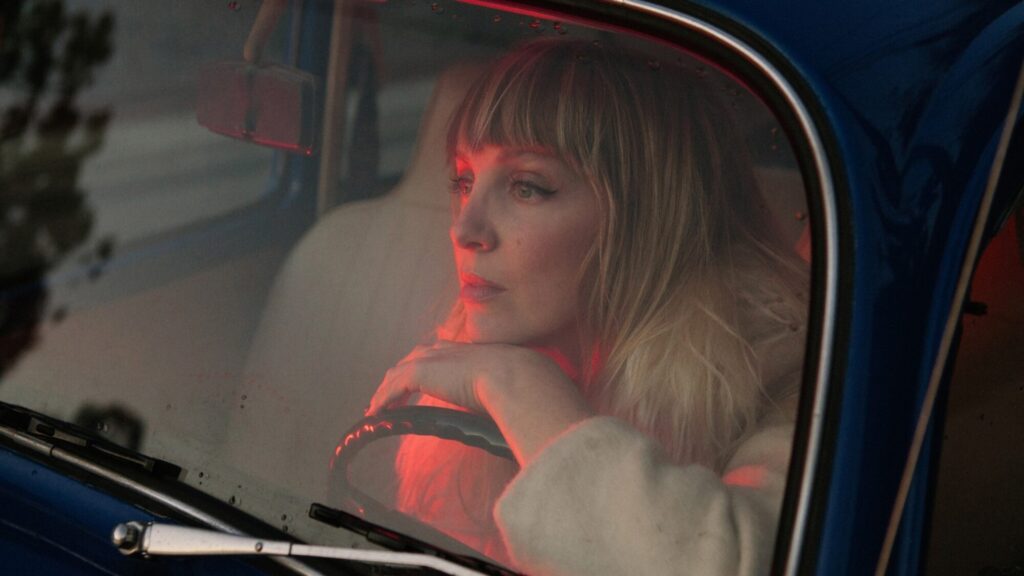
What’s next for you?
I’m heading out on a solo tour of the US in November and December, from LA to Philly and DC and back again. I’ll be raising awareness of nonprofits in each city who are supporting immigrants in ICE times. I’ll continue kicking up the dust around the whole Disarm Spotify campaign, and finding ways to create bridges between the queer punks doing radical work in their own neighborhoods with people on big platforms and all the way around the world to amplify voices, particularly Palestinian, queer, trans, immigrant, female, and Indigenous voices, who need to be heard before they’re silenced completely. We need the whole choir right now, singing.
Thank you so much for this beautiful interview. I really appreciate the way that you so deeply listened.
Klemen Breznikar
Headline photo: The Mynabirds (Credit: Jess Ewald)
The Mynabirds Website / Facebook / Instagram / Bandcamp / YouTube

